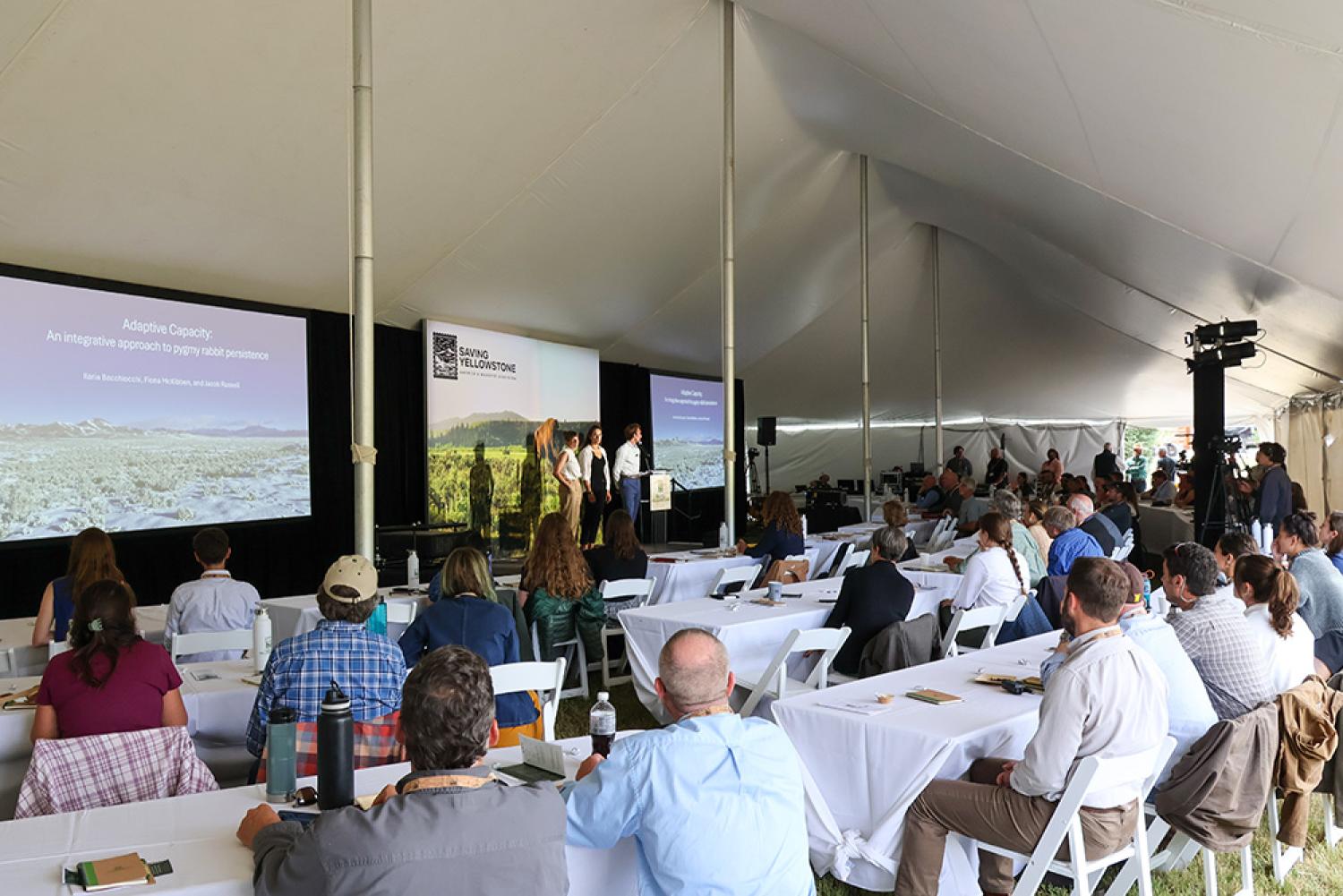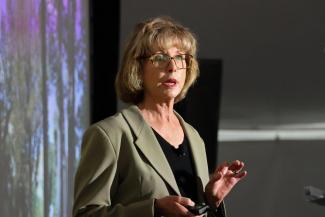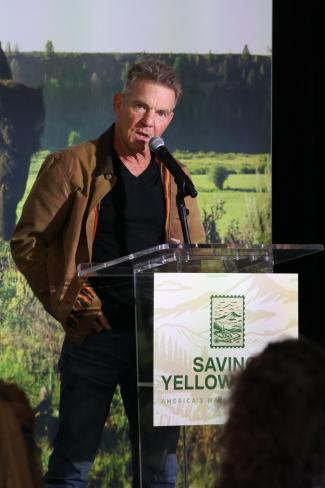
A remote valley in western Wyoming became the epicenter of bold conservation conversations this August, when scientists, community leaders, and advocates gathered for the inaugural Saving Yellowstone Conservation Summit.
Hosted at Jackson Fork Ranch from August 20-22, the summit united faculty and students from five universities—including CU Denver—around one shared goal: to protect the Greater Yellowstone Ecosystem for future generations.
For three days, the summit buzzed with insight and urgency. Participants explored complex conservation issues, from wildlife migration and habitat loss to private land development and climate change. The event showcased what's possible when public institutions, private landowners, and local communities come together around a common cause.
Joe Ricketts, founder of Saving Yellowstone and owner of Jackson Fork Ranch, funded multi-year research grants for participating universities. These grants aim to fill knowledge gaps and drive solutions that keep this ecosystem wild and resilient. "Yellowstone is more than a park; it's one of the last intact ecosystems on Earth," Ricketts said. "By bringing the best scientific minds together, we’re investing in knowledge, collaboration, and leadership to ensure this ecosystem thrives for the next 150 years.”
 Among the voices shaping this dialogue was Dr. Diana Tomback, professor at CU Denver and a leading expert on adaptive conservation strategies for forest ecosystems. She noted the urgency of adaptive management, “The threats of invasive species, warming climate, and human use demand flexible approaches. The Summit highlights how partnerships and science-based decisions can sustain Yellowstone’s ecological legacy.”
Among the voices shaping this dialogue was Dr. Diana Tomback, professor at CU Denver and a leading expert on adaptive conservation strategies for forest ecosystems. She noted the urgency of adaptive management, “The threats of invasive species, warming climate, and human use demand flexible approaches. The Summit highlights how partnerships and science-based decisions can sustain Yellowstone’s ecological legacy.”
“The threats of invasive species, warming climate, and human use demand flexible approaches."
Dr. Tomback also addressed the decline of Whitebark pine in the Greater Yellowstone Ecosystem and the potential loss of Clark’s nutcracker, its principal seed disperser. She underscored the importance of reversing these declines to preserve the balance of the ecosystem. Continuing this work, her graduate student, Karina Li, shared insights from their ongoing studies of the Whitebark pine/Clark’s nutcracker relationship in Yellowstone National Park.
 CU Denver wasn't alone in lending expertise. Faculty from University of Wyoming, Montana State University, University of Montana, and University of Idaho offered perspectives rooted in ecology, community engagement, and long-term stewardship. Their presentations spanned species like great gray owls, red squirrels, wolves, and moose-reminding attendees that every organism plays a part in Yellowstone's ecological web.
CU Denver wasn't alone in lending expertise. Faculty from University of Wyoming, Montana State University, University of Montana, and University of Idaho offered perspectives rooted in ecology, community engagement, and long-term stewardship. Their presentations spanned species like great gray owls, red squirrels, wolves, and moose-reminding attendees that every organism plays a part in Yellowstone's ecological web.
Actor and narrator of the Saving Yellowstone documentary, Dennis Quaid, delivered the keynote. Having spent time in Wyoming, Quaid spoke of the state's wild beauty and the responsibility we all share to protect it. “Wyoming represents both the challenges and the hope of conservation," he said, "and it is a privilege to stand here with those working daily to protect it.”
For CU Denver and its College of Liberal Arts and Sciences, the summit underscored the power of applied research and inclusive dialogue. It also echoed the university's core values: real-world relevance, community impact, and education that works for all.
As the summit closed, one idea resonated above all: Yellowstone's future depends on the actions we take today. And CU Denver researchers, alongside partners across the region, are rising to meet that moment.
Actor Dennis Quaid speaks at summit
